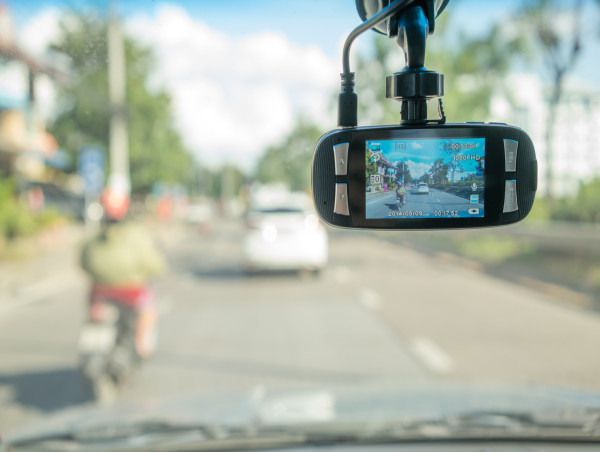The Growing Use of Dashcams
Dashcams are small cameras mounted on the dashboard or windshield of a vehicle, continuously recording the view through the front windshield. Some models also offer rear-view and interior recording capabilities. These devices capture real-time footage of driving conditions, road events, and incidents, providing an objective account of what occurred. As their popularity grows, dashcams are becoming a common accessory for many drivers in Louisiana and across the country.
Benefits of Dashcams in Accident Claims
The primary benefit of dashcams is the ability to provide clear and unbiased evidence in the event of an accident. This footage can be crucial in determining fault and liability, especially in cases where eyewitness accounts are conflicting or absent. Dashcam recordings offer several key advantages:
Accurate Documentation: Dashcams provide an accurate and detailed record of events leading up to, during, and after an accident. This documentation can help clarify the sequence of events and identify contributing factors.
Protection Against Fraud: Dashcam footage can protect drivers from fraudulent claims, such as staged accidents or false accusations. The objective nature of video evidence makes it difficult for fraudulent claims to succeed.
Support for Insurance Claims: Insurance companies often require substantial evidence to process claims. Dashcam footage can expedite the claims process by providing clear and indisputable evidence of the incident.
Enhanced Accountability: Knowing that their actions are being recorded, drivers may be more inclined to drive responsibly, potentially reducing the likelihood of accidents.
Legal Implications of Dashcam Footage
While dashcam footage can be beneficial, it is essential to understand the legal implications of using this technology in Louisiana. William P. Morrow explains that dashcam footage can significantly impact the investigation and resolution of accident claims. However, certain considerations must be taken into account:
Admissibility in Court: Dashcam footage is generally admissible in court, provided it meets specific criteria. The footage must be relevant to the case, and its authenticity must be verified. Additionally, the recording should not have been tampered with or edited in any way.
Privacy Concerns: Although dashcams primarily record public spaces, there are privacy considerations to be aware of. Recording individuals without their consent in areas where they have a reasonable expectation of privacy could lead to legal issues.
State Laws and Regulations: Louisiana does not have specific laws governing the use of dashcams, but it is essential to comply with general legal standards. For instance, obstructing the driver’s view with a dashcam can result in fines. Ensuring that the device is mounted correctly and used responsibly is crucial.
Using Dashcam Footage in Accident Investigations
In the event of an accident, dashcam footage can serve as a critical piece of evidence during investigations. Law enforcement officers, insurance adjusters, and legal professionals can use the footage to gain a clearer understanding of the incident. William P. Morrow highlights several ways in which dashcam footage can aid accident investigations:
Determining Fault: Dashcam footage can provide visual evidence that helps determine which party was at fault. This can be especially useful in cases where drivers dispute the cause of the accident.
Corroborating Testimonies: Eyewitness accounts can sometimes be unreliable or contradictory. Dashcam footage can corroborate or refute these testimonies, providing a more accurate picture of the events.
Assessing Road Conditions: The footage can show road conditions, traffic signals, and the behavior of other drivers, all of which may be relevant to the investigation.
Documenting Impact and Damage: Dashcam recordings can capture the moment of impact and the extent of damage to the vehicles involved, aiding in the assessment of repair costs and injury claims.
The Future of Dashcams in Legal Contexts
"As technology continues to advance, the use of dashcams and other recording devices is likely to become even more prevalent. The integration of features such as GPS tracking, real-time data transmission, and advanced analytics could further enhance the utility of dashcams in legal contexts."
Legal professionals and insurers may increasingly rely on this technology to resolve disputes efficiently and fairly. However, it remains important for drivers to stay informed about the legal aspects of using dashcams and to ensure that their use complies with all relevant regulations.
Conclusion
The role of dashcams in Louisiana accident claims is becoming more significant, offering clear benefits in terms of documentation, fraud prevention, and claims support. Legal implications, including admissibility in court and privacy concerns, must be considered to use this technology effectively. Dashcam footage can play a crucial role in accident investigations, aiding in determining fault, corroborating testimonies, and assessing road conditions. As the adoption of dashcams grows, understanding their impact on legal processes and accident claims will be increasingly important.
Morgan Thomas
Rhino Digital, LLC
+1 504-875-5036
email us here
Visit us on social media:
Facebook
![]()



